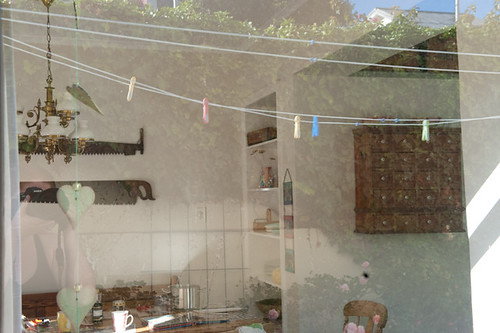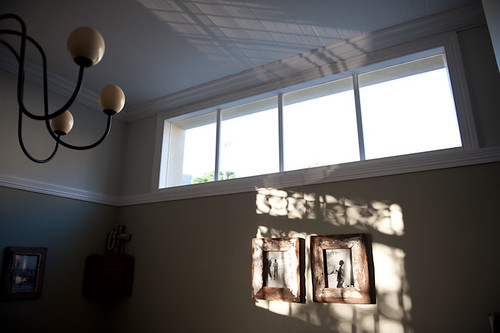Today every time my son got upset, he cried, “I just want to be back in Canada.” Or “I want to get on the plane to Canada tomorrow!” When he’s happy, like if he’s just come out of the pool or we’re at the beach, he says, “I’m so happy to be in this country!” I understand exactly how he feels, alternating between “We only have a bit more than a week left, and we’ve barely done anything or seen anyone!” and “Oh wouldn’t it be nice to feel at home and safe again? That said, I think we’re finally getting our land legs here in Cape Town. We’ve been here for more than a week now, and it’s largely been spent dealing with rental car, cell phone and electricity issues. This is the downside of renting a private home instead of staying in a B&B or a hotel, I guess. The upside is having a whole lot of privacy.
Actually today and yesterday were quite nice. Yesterday we went to the waterfront, and went out on a short harbour cruise, because my son was superkeen to go on a boat ride, and then the aquarium, which he also enjoyed. Today we had lunch in Company Gardens and wandered through the South African Museum. The last couple of nights we’ve made dinner at home, and they were decidedly more successful than the fish biltong my husband barbecued in our first attempt at a home-cooked meal.
I also finally began my photo project today… no photos, but meeting contacts and getting oriented in the area I want to photograph. I’m nervous that it’s bigger than I can reasonably do in the short time left, but I might as well try to do as much as I can before we leave.
I’m reminded of an old boyfriend, who advised me one night when we were walking home from the local swimming hole and a thunderstorm hit. I was kind of freaking out, convinced we’d be struck by lightning, and my legs kind of didn’t work. When I told him I thought we were going to die, he replied that that may well be, but he wanted to get as close to home as possible before it happened. So we ran. And we made it home. It’s a principle that I’ve applied in many situations, and I may as well apply it here too.
I’d forgotten just how uncomfortable travelling is, especially with a young child. Though I think it would be A LOT more uncomfortable for me to attempt travelling this far without my son. I like keeping my family near me. And we’ve never been big night life people anyways. I wonder what memories, if any, my son will retain from this trip?
I’ve posted a few pics to flickr, although we pay for the internet by the MB so not many. Plus, I haven’t actually been taking many photos yet. Here are a few:
There’s a few more on flickr, if you’re interested.




